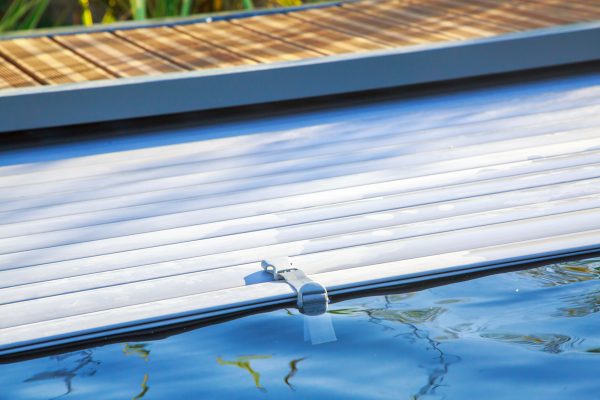Closing your pool in the winter is essential for several reasons, as it helps protect the pool and its components from potential damage caused by freezing temperatures and harsh weather conditions. Here are the main reasons why you should close your pool during the winter months:
- Freezing Water Damage: If water inside the pool freezes, it can expand and cause significant damage to the pool structure, plumbing lines, and equipment. This can lead to cracks, leaks, and costly repairs when the pool is reopened in the spring.
- Chemical Preservation: Pool chemicals, especially chlorine, are less effective in colder temperatures. By closing the pool, you can avoid the need to maintain chemical levels during the winter, saving you money and reducing chemical usage.
- Algae Prevention: Cold temperatures and reduced chemical effectiveness make it easier for algae to grow in the pool during winter. Closing the pool helps prevent algae blooms, making it easier to reopen the pool when the warmer weather returns.
- Safety Concerns: In colder climates, a frozen pool can pose safety hazards, especially if someone accidentally walks on the ice-covered surface. Closing the pool and properly securing it ensures that no one accidentally falls into the water during winter.
 Energy Savings: Pool pumps and heaters are energy-intensive equipment. By closing the pool and turning off these devices during winter, you can save on energy costs.
Energy Savings: Pool pumps and heaters are energy-intensive equipment. By closing the pool and turning off these devices during winter, you can save on energy costs.- Extended Equipment Lifespan: Closing the pool gives the pool equipment a break from continuous operation, potentially extending the lifespan of pumps, filters, and heaters.
- Protecting Pool Covers: Closing the pool allows you to install a winter cover, which helps protect the pool from debris, leaves, and other contaminants that can accumulate and make spring opening more challenging.
- Reduced Maintenance: During the winter, you don’t need to perform regular pool maintenance tasks like skimming, vacuuming, and balancing chemicals. Closing the pool streamlines maintenance efforts.
- Insurance Requirements: Some insurance policies may require the pool to be closed during the off-season to be eligible for coverage or to avoid certain liabilities.
- Preparation for Spring Opening: Properly closing the pool in the winter makes it easier to prepare and reopen the pool when the weather warms up. It reduces the effort required to clean and balance the pool water, ensuring a smooth and hassle-free transition to the swimming season.
Freedom Pool Solutions will open and close your pool in the spring and fall.


